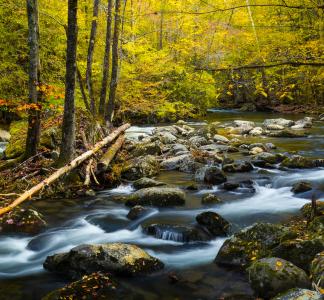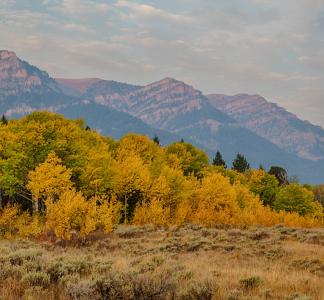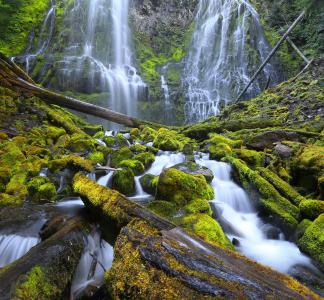Zach Bright
A four-lane highway threatens Appalachia’s forests
Spectacular old-growth forests in the Southern Appalachians lie in the path of a proposed four-lane highway project. The outdated “Corridor K” highway system was originally proposed in the 1960s to connect Chattanooga, Tenn. and Asheville, N.C.
Since then, other interstates have been built to connect these cities, ending the need for Corridor K. Yet recent proposals to revive this plan would cut through otherwise unbroken mountain forests and drill a half-mile long tunnel under a mountain pass that the Appalachian Trail traverses. The road would disrupt plants and animals, degrade water quality and threaten the historic arts community of Stecoah.
Spectacular Appalachian vistas, lush forests and pristine creeks are threatened by the Corridor K road project. These lands provide outstanding outdoor recreation to visitors and important habitat to special plant and animal species.
The expansion and additions to Corridor K would tarnish Appalachian wild places such as Cheoah Bald and the Unicoi Mountains. These new roads would introduce truck traffic, cut through mountainous landscapes and damage thousands of acres of wildlife habitat and hiking trails. Instead of creating new roads, we believe in making targeted improvements to the existing highways and investing in the area’s communities to address issues of safety and economic development.
All of this damage would be for an unnecessary highway. Today, two-lane highways already exist along portions of the proposed Corridor K route. They already serve as scenic highways that attract tourists and businesses to the area.
What we’re doing
-
Bringing ecology to the table
We’re conducting and presenting research on the high ecological value of wild places in Corridor K’s path.
-
Advancing alternative solutions
Rather than build a new highway, we know that improvements can be made to the existing road system, and we support and advocate for those alternative solutions.
-
Combining our strengths
We’re working with partners like WaysSouth to challenge misguided attempts to revive Corridor K.



